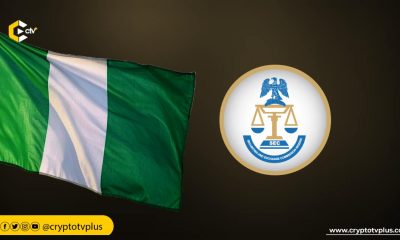News
Nigeria to join Financial Action Task Force (FATF)

The Federal Government of Nigeria has indicated interest to join the Financial Action Task Force (FATF), a global money laundering and terrorist financing watchdog.
This was disclosed by the Attorney-General of the Federation and Minister of Justice, Abubakar Malami at the Extraordinary Ministerial Committee Meeting of the Intergovernmental Action Group against Money Laundering in West Africa (GIABA).
According to a statement credited to the spokesman for the Attorney-General’s Office, Umar Gwandu, the decision to join the FATF is in line with the resolve of the government to address the challenges of money laundering and terrorism financing.
The FATF is a global money laundering and terrorist financing watchdog. As an intergovernmental body, the FAFT sets international standards that aim to prevent illegal activities and the harm they cause to society.
The body was established in July, 1989 by a Group of Seven (G-7) in Paris with the initial mandate to ‘examine and develop measures to combat money laundering. In October, 2001, the groups’ mandate was expanded to incorporate efforts to combat terrorist financing, in addition to money laundering. Two years into the last decade, the FAFT added began measures to counter the financing of proliferation of weapons of mass destruction.
According to FAFT, its objectives are to;
“set standards and promote effective implementation of legal, regulatory and operational measures for combating money laundering, terrorist financing and other related threats to the integrity of the international financial system.”
eNaira, the Central Bank of Nigeria’s Digital Currency is Live
Dubai Financial Regulator Releases Framework for Investment Tokens
With a 39 member international organization, the FAFT has been working to address financing of global illegal activities.
It is no doubt, the Nigerian state has been plagued by terror reigning elements such as the Boko Haram, the terror group known across Nigeria as Bandits and other criminal elements in the nation.
The Attorney-General, Malami said the Nigerian Financial Intelligence Unit had issued an executive alert all Ministries, Departments, and Agencies (MDAs) for the implementation of the action plan on the nation’s follow up process.
The Justice Minister thanked the FATF, GIABA and member states for reviewing and adopting the just-concluded second Mutual Evaluation Report (MER) of Nigeria. The Attorney General guaranteed the member states that Nigeria has a high-level vow to tackling money laundering and terrorism financing in order to ensure a smooth stable and peaceful nation.
The FAFT in October, 2019 published a report titled “Money Laundering Risks from ‘Stablecoins’ and other emerging Assets”.
In the report, anti-money laundering and terrorist financial watchdog said;
“emerging assets such as so-called global ‘stablecoins’ and their proposed global networks and platforms, could potentially cause a shift in the virtual asset ecosystem and have implications for the money laundering and terrorist financing risks.”
The organization further said stablecoins and their service providers would be subject to the FATF standards either as virtual assets and virtual assets providers or as traditional financial assets and their service providers. The FATF believe stablecoins and their providers should not be “outside the scope of anti-money laundering controls.”
Days after the Central Bank of Nigeria issued the February 5th circular that prohibited banks from facilitating financial transactions in the country, the Central Bank Governor, Godwin Emefiele said cryptocurrencies are opaque and they have;
“become well suited for conducting many illegal activities, including money laundering, terrorism financing, purchase of small arms and light weapons, and tax evasion.”
Earlier this year, Bolaji Owasanoye, Chairman of the Independent Corrupt Practices and Other Related Commission (ICPC) said the ENDSARS protest of October, 2020 was largely financed by cryptocurrency; indicating it could also be used to fund insurgency. The ICPC chairman backed the CBN Governor’s position on cryptocurrency; he argued that cryptocurrency lends itself to money laundering and terrorism financing. The agency had several cryptocurrency linked cases but was incapable of track the suspects.
Even as the Central Bank remains resolute on its position on cryptocurrency, and as Nigeria joins the FATF, could more regulations be expected in the Nigerian crypto industry? And if so, will it cause the CBN to nullify its circular, even if the Court has already done so?
What do you think of this story? Share your comments below.

























Pingback: Could the Squid Game Token Creators Be Playing the Game? – Crypto Watch Daily